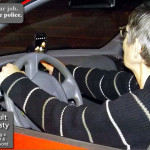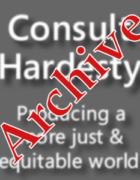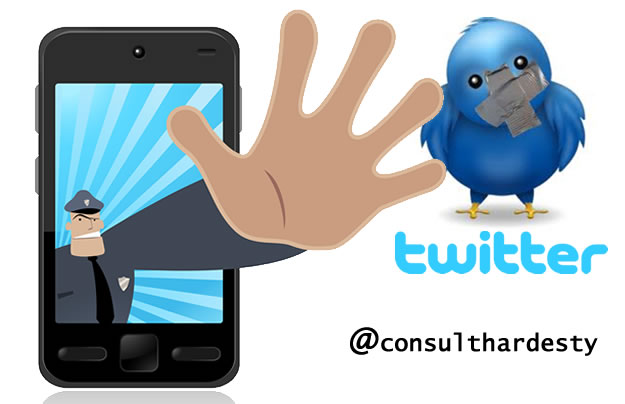Jo Ann Hardesty, recently honored by the National Newspaper Publishers Association, responded to an invitation to address the Pacific Northwest Social Forum on 27 September 2014. A radio host of twenty years and a former Board President for Portland Community Media, Jo Ann is well-suited for her chosen topic: The People’s Use of Media to Hold Police Accountable to the Rule of Law. She co-facilitated an afternoon breakout session on media, where participants hashed out and submitted action items for consideration by a People’s Movement Assembly (PMA). The result: a Pacific Northwest People’s Plan for Justice.
Her opening remarks:
Six corporations now control 90% of U.S. media outlets.
We’re being starved out. Our media diets are high on fluff and low in nutrition.
Consolidation has had dire impact on access to adequate information, pursuit of innovation and appreciation for diversity. KBOO and other public access points provide local relationships, but still present as one-to-many broadcasting. I want to address social media, for advantages it may bring, in one-to-one and in networked communication styles.
Many of you know I’ve taken responsibility for demanding police accountability. Known, existing conditions include racial profiling, illegal use of force, unconstitutional surveillance, and a ‘self-defeating accountability system’ that always leads to police exonerating themselves. Body worn cameras are getting some traction, as a tool some think will deter cops from using force illegally. I’m always suspicious when police develop tools to hold themselves in check, and I forsee these cameras, when coupled with facial recognition software and massive intelligence databases, as intrusive surveillance portals.
So the primary issue I want to address, and use it to model PMA techniques, is The People’s Use of Media to Hold Police Accountable to the Rule of Law.
We’re convened to find creative solutions to problems in our communities. Social media offers untested opportunities and tremendous potential for improving justice.
It’s time The People take responsibility to ensure our constitutional protections are in force. Hand-held technology puts power in our grasp. Instead of mounting cameras on cops, I offer you a vision of making community members into reporters.
Some of you may be aware that online communities are already forming. Locally, we have several groups with websites, Twitter and facebook presences: Oregon Copblock and Film the Police Portland are two with a history of monitoring police encounters. In addition to discourse on media coverage and public policy announcements, these decentralized projects train and empower folks to record life on our streets.
Suppose we made copwatching a way of life. Many of us now carry cameras wherever we go. We can all be content creators, we can BE the media. Those who enjoy the genre will appreciate this as a pure form of documentary film-making.
Let me craft a vision for you. When police violence is visually documented, it gets attention. Corporate media picks it up, local authorities’ attempts at message control fall apart. Apolitical constituents can’t fail to see the injustice. When police violence is documented, jury verdicts are more likely to bring justice.
Collective action is required. We’re at the starting point. Pioneer copwatchers have sufficient working knowledge to be able to deliver training: we’ll need to gather folks to take that training. But social justice will really leap forward when we convey to the less politically active that it is a patriotic act to see that the Constitution is respected. Imagine that we can make it ‘cool,’ or ‘neighborly’ to stop and film whenever we see police engaging African American youth. Imagine folks ‘bearing witness’ when cops stop cars driven by those lacking sufficient economic opportunity to avoid police contact by driving a new car.
I say it is vital, as America undergoes unprecedented domestic police surveillance, to turn the tables: it has become time for the public to pay close attention to police conduct.
Some in the upcoming media assembly may want to pick up on this vision. I see a need for digital ‘drop boxes.’ Web anonymity may be a thing of the past, in terms of our nation’s present surveillance state, but we must develop a means of getting acquired video footage into the hands of lawyers. It’s not enough to just post the documents, we must close the circuit so that recordings of misconduct become evidence in trials. In a more perfect union, a People’s Training Advisory Council would use these documents to demand improvements to police training; a Community Oversight Board would use them to demand discipline for errant officers.
Cell phone applications need to be assessed or developed. They’re out there: ACLU New York has a Stop ‘n Frisk app. ACLU New Jersey has a Police Tape app which informs users of their rights, records video, and also alerts other users when someone is recording an incident. Other apps simultaneously upload recordings, preventing police from seizing the evidence.
 We know of one woman locally who has fashioned her own ‘dash cam’ (right).
We know of one woman locally who has fashioned her own ‘dash cam’ (right).
Regardless of the media movement demands you’ll make later today, we can all become resolved to take responsibility for our information diets. I fear that, without collective action, we’ll divide into a nation of information “haves” and “have nots,” in much the same way that we are separated into the vastly rich and the rest of us.
Do not fear media streams that seem to advocate for ‘others’ among us. Seeking justice for those you consider ‘other’ is likely to result in quality-of-life improvements in the dominant culture as well. As we jointly seek to eliminate racial disparities, for example, we’re likely to improve The People’s standing generally; we’re more likely to root out other forms of police corruption and change police culture to make them more responsive to the community as a whole. With trusted, ethical community relationships, police have a better chance to actually solve crime. The broad pursuit of civil rights can actually stymie fascism.
So, whether you’re resolved to form a collective of producers at Portland Community Media, or take on a programming slot at KBOO radio, I’d encourage you to not only disseminate your ‘truth:’ I’d encourage you to work from a community that values those who’ve too long been on the downside of power. Consider being inclusive and empowering: give voice to those who’ve lacked access to a microphone.
To a large degree, you are what you read. Get intentional about your media diet. Set recording devices for non-commercial programs on publicly supported channels. Bookmark or set your home page to Indymedia and other non-traditional sources which may cause you to think for yourself. Follow RSS feeds of dedicated, community-oriented videographers like Joe Anybody. Delve into the blogosphere, where you’ll circulate among innovative thinking and locally sourced content. Twitter. Subscribe to YouTube channels that nourish your interests.
Above all, I encourage you to create the kind of community you want. BE the media. Don’t simply consume it. Employ empowering technology and serve something up. We know solo musicians who’ve become their own band. We’ve seen films made on home computers. Create an identity. Build your own blogs. Broadcast your own aspirations.
I encourage you to seek social justice in a spirit of cooperation. Post your truth in comment sections, but then check back for reflections others have contributed. Share. Re-tweet. Occupy a communal table and share in a feast as we feed one another.

See our posts ‘Justice Delivery Tools‘ and ‘Tweet This‘ for more on mobile apps and policing.
